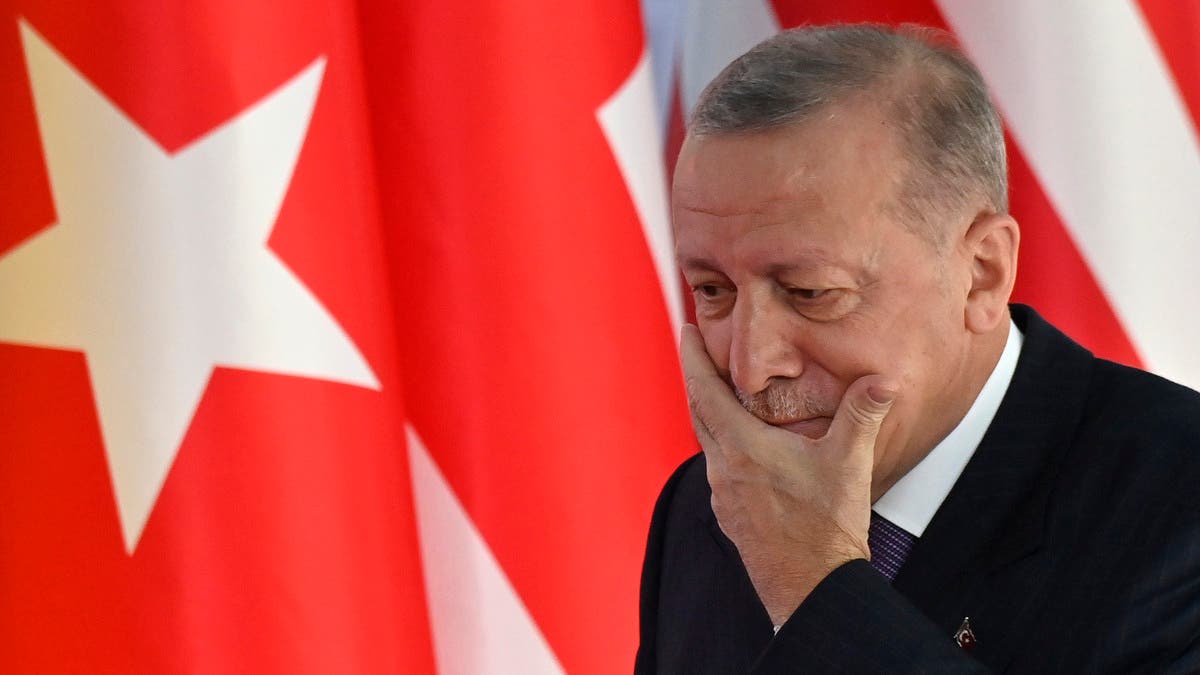Turkish President Recep Tayyip Erdogan is putting his political life on the line with a risky wager that driving down interest rates will reverse his skidding opinion polls, despite what is already a heavy economic toll on voters.
The country’s leader of nearly two decades is ploughing on with a “new economic model” he says will boost jobs, growth, exports and cheap credit – and ignoring for now a resulting historic drop in the lira, as well as soaring inflation.
For all the latest headlines follow our Google News channel online or via the app.
The policy shift could signal a last-ditch attempt by Erdogan and his ruling AK Party (AKP) to shore up his socially conservative, working and lower middle class voter base ahead of presidential and parliamentary elections in 2023, analysts said.
But surging prices and currency devaluations are already wreaking havoc on Turks’ household budgets and future plans.
In Istanbul’s working class Kasimpasa district, an AKP bastion where Erdogan, a pious Muslim, studied the Koran and played soccer as a boy, few can ignore the rocketing cost of living – and some said it could sway their votes.
“People who come by my teahouse are complaining a lot about prices. The economic struggle is on everyone’s agenda,” said Abdurrahman Erenli, serving tea to a handful of customers across the road from a mosque where Erdogan used to pray.
“People are changing their views due to the situation in the economy. I think votes for the AKP will come down in the next election, for sure, though they still have very solid support.”
It is a far cry from the early years of AKP rule when its pursuit of free market policies and orthodox monetary policy helped to rebuild Turkey’s economy after a deep crisis in 2001.
‘Ignorance’
Under pressure from Erdogan, Turkey’s central bank has slashed its policy rate by 400 basis points to 15 percent since September. It will likely cut again this month, despite inflation that is near 20 percent and is expected to approach 30 percent.
The fallout has been dramatic.
The lira shed some 30 percent in November alone, its second-worst month ever, reflecting Turkey’s deeply negative real rates as well as its high foreign debt and heavy reliance on imports.
Turks are now struggling to find some medicines and buy some other imports such as mobile phones. Opposition leaders are demanding snap elections.
“This country cannot be abandoned to this ignorance anymore,” said IYI Party leader Meral Aksener.
Erdogan’s Islamist-rooted AKP and its nationalist allies MHP are now at level-pegging with an opposition alliance, each with about 39 percent support, according to a MAK Danismanlik poll published on Saturday.
A Metropoll survey showed Erdogan’s job approval has hit a six-year low. Polls also show he would lose to likely presidential candidates including Aksener and Istanbul’s mayor, Ekrem Imamoglu of the main opposition CHP.
“It is clear the ruling alliance is losing support. The steps in the economy need to yield results, otherwise there may be vote losses,” said a senior government official who requested anonymity.
Digging in
A senior AKP official said the new measures would yield benefits by the time of the election.
“Of course we have entered a difficult period (but) what is needed now is time,” the official said.
Reuters has reported, citing sources, that Erdogan ignored appeals in recent weeks, even from within his government, to reverse what he has called Turkey’s “economic war of independence.”
Erdogan has defended the rate cuts six times in the last two weeks and said there is “no turning back,” with almost every speech driving the currency to new record lows.
The lira touched 14 to the dollar on Tuesday, down from 6.9 in February before Erdogan sacked the previous central bank governor and began aggressively pushing his easy-money views.
The depreciations stoke import prices and broader inflation expectations in a country where food prices are up nearly 30 percent from last year.
“The most acute issue is high inflation,” said Can Selcuki, general manager of Istanbul Economics Research, a consultancy.
“I expect the elector sentiment regarding both the government and Erdogan to sour further.”
Read more:
Recent depreciation in Turkey’s lira is adding to inflation pressure: Fitch
Turkey’s Erdogan stays firm on interest rates, lira weakens four percent
Protests in Istanbul, Ankara calling on Erdogan’s govt. to resign after lira crash

 World3 years ago
World3 years ago
 World3 years ago
World3 years ago
 Business11 months ago
Business11 months ago
 Entertainment7 years ago
Entertainment7 years ago
 World7 years ago
World7 years ago
 Entertainment7 years ago
Entertainment7 years ago






